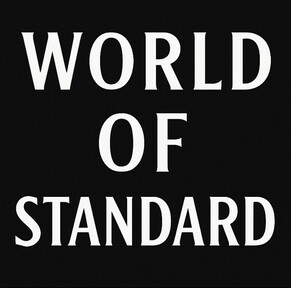Major Study by Standard Prva: Workforce Mobility in BiH
09.09.2025The workforce in Bosnia and Herzegovina is becoming a critical topic – not only a daily political story but also a serious problem for domestic companies. The growing departure of young and educated workers, along with a limited inflow of foreign workers, is creating pressure on the labor market. The consequences of this “labor force crisis” are already being felt by employers and the economy, and if the trends continue, the shocks could be far-reaching. What led to this situation and, more importantly, what is the solution?
Mass Departure of Young People
Statistical indicators and research confirm the massive departure of the population, especially the young, from BiH. According to estimates, BiH lost more than 620,000 inhabitants from the 2013 census to 2023 (from about 3.53 million to 2.90 million). Bosnia and Herzegovina today is among the countries with the largest diaspora in the world – about 34% of people born in BiH live abroad (approximately 2 million people). Such a high outflow has brought BiH to the very top of global “brain drain” rankings.
At the same time, surveys show worrying trends among young people: as many as 51.3% of youth in BiH say they are interested in leaving the country. The reasons are many, mostly economic – youth unemployment reaches about 38% (four times higher than the EU average), along with low wages for those who do work. In addition, young people cite an unstable political situation, poor quality of life, and a feeling of insecurity about the future of their families as motives for emigration. It is not only the unemployed – research shows that successful, ambitious, employed young people are also increasingly leaving BiH, seeking a social environment where they can build a better career and life. In other words, the exodus of young professionals affects all layers of society.
Consequences for the Economy and Business
The outflow of labor leaves employers in BiH facing serious challenges: the domestic labor market is increasingly lacking qualified workers in many sectors. Those who leave are hard to replace – unemployed candidates often lack the required skills, and younger generations are few due to the long-standing decline in birth rates. Employers are already reporting difficulties in finding workers, from construction and hospitality to the IT sector. Paradoxically, BiH today feels a shortage of skilled labor that was once characteristic only of much wealthier countries.
Neighboring countries directly profit from this development – they employ workers leaving BiH. For example, Croatia issued about 115,000 work permits to foreign workers in the first seven months of 2025, with the largest share of workers coming precisely from Bosnia and Herzegovina. Such a continuous outflow threatens to slow down economic growth in BiH and further burden the already weak pension system. On the other hand, the BiH economy has become dependent on remittances from the diaspora, which now make up about 14% of the country’s GDP – diaspora money helps maintain consumption, but cannot replace lost human capital. Experts warn that if current trends continue, the consequences for society and the economy could be dramatic – from further depopulation to the collapse of economic and social structures. Already, some local communities have emptied out, and many smaller places risk complete depopulation if nothing changes.
Limited Inflow of Foreign Workers
Foreign workers from Turkey are laying tram tracks in Sarajevo, filling the shortage of domestic labor in construction. BiH has so far been slow to open up to importing labor from abroad. The share of foreign workers in the total number of employees still amounts to only 0.7%, which means that domestic labor practically has no real substitute. The BiH Council of Ministers did set an annual quota for importing workers – for 2024 it was set at 6,073 work permits, and for 2025 increased to about 7,229 permits – but even those modest quotas are not fully used. In 2024 only about 56% of the planned permits were used (with only 42% in the Federation of BiH). The main reason lies in lengthy and uncoordinated administrative procedures for employing foreigners, as well as weak institutional coordination. In other words, bureaucratic obstacles prevent employers from quickly filling vacancies with imported labor.
Those foreign workers who do come to BiH mostly fill jobs at lower and medium skill levels. Most foreigners work in construction, manufacturing, and various services – precisely the sectors with the greatest demand for labor. Most come from developing countries such as Turkey, Nepal, Serbia, India, or Bangladesh, often through intermediary agencies. Their engagement is mostly temporary: they usually live and work in BiH for a few months, without permanently relocating families, similar to former “guest workers” in the West. However, given the growing deficit of domestic labor, BiH may soon witness permanent immigration of workers. Neighboring countries have already started adapting to this new reality – Croatia adopted a law requiring foreign workers to be provided with housing and prohibiting them from being paid less than locals for the same jobs. In BiH, these issues are only now coming onto the agenda as the need for more imported labor arises, so it will be necessary to design policies that both facilitate the arrival of foreigners and protect the standard of domestic workers.
How to Retain and Attract Workforce?
Bosnia and Herzegovina will have to implement active measures to curb the departure of labor and secure new sources of talent. One direction of solution is better connection with the diaspora and returnees. Unfortunately, BiH authorities have neglected their diaspora for years – BiH does not even have a ministry for diaspora, nor are there targeted incentive programs or favorable loans for citizens abroad who would consider returning. Only recently, for example, Sarajevo Canton established a Diaspora Office, and civic initiatives such as the “Come Back Home” campaign (Movement Power of Homeland) have emerged, putting up large billboards at borders inviting emigrants to return and help rebuild the country. Experiences from neighboring countries show that investing in return pays off: in 2025, Croatia launched a public call financially supporting projects for the return of Croats to BiH (up to €80,000 per project) with the aim of improving conditions for returnees through investment in infrastructure and businesses. Such a strategic approach to the diaspora – recognizing emigrants as a development opportunity – could serve as a model for BiH. Authorities should consider introducing incentives to motivate part of the 2 million citizens abroad to invest in the homeland or to return.
At the same time, it is necessary to improve conditions in BiH itself that drive young people away. This includes creating quality jobs and raising wages, a more stable and transparent business environment, and modernization of education to align with labor market needs. Employers and unions emphasize that working conditions must be improved to ensure more young people stay in the country and that returnees can remain long-term after returning. Also, BiH will have to reach much more quickly for controlled import of labor from abroad – procedures for bringing in foreign workers in shortage occupations need to be simplified, and administrative barriers that currently slow down the process removed. At the same time, worker rights protection must be ensured: neighboring countries have already legally regulated that foreign workers receive equal pay and provided housing as locals, which is good practice to adopt. A combination of these measures – retaining domestic labor through better conditions, engaging the diaspora, and strategically filling gaps with foreign workers – can mitigate negative trends.
Finally, demographic experts warn that urgent actions are necessary. It is essential to simultaneously stop the population outflow and encourage return, because otherwise the long-term consequences for BiH society and economy will be very serious. The future of the country is at stake – and that is why now is the time to act strategically so that Bosnia and Herzegovina keeps its most valuable resource, human capital, within its borders.
/ / /
"Standard Prva" LLC Bijeljina is a company registered in Bijeljina at the District Commercial Court in Bijeljina. Company’s activities are accountancy, repurchases of receivables, angel investing and other related services. Distressed debt is a part of the Group within which the company repurchases the receivables, which function and are not returned regularly.
Lawyer’s Office Stevanović is the leading lawyer’s office in the region with the seat in Bijeljina. The LO abbreviation represents Lawyer’s Office of Vesna Stevanović and Lawyer’s Office of Miloš Stevanović.
Contact for media press@advokati-stevanovic.com or via telephone 00 387 55 230 000 or 00387 55 22 4444.




